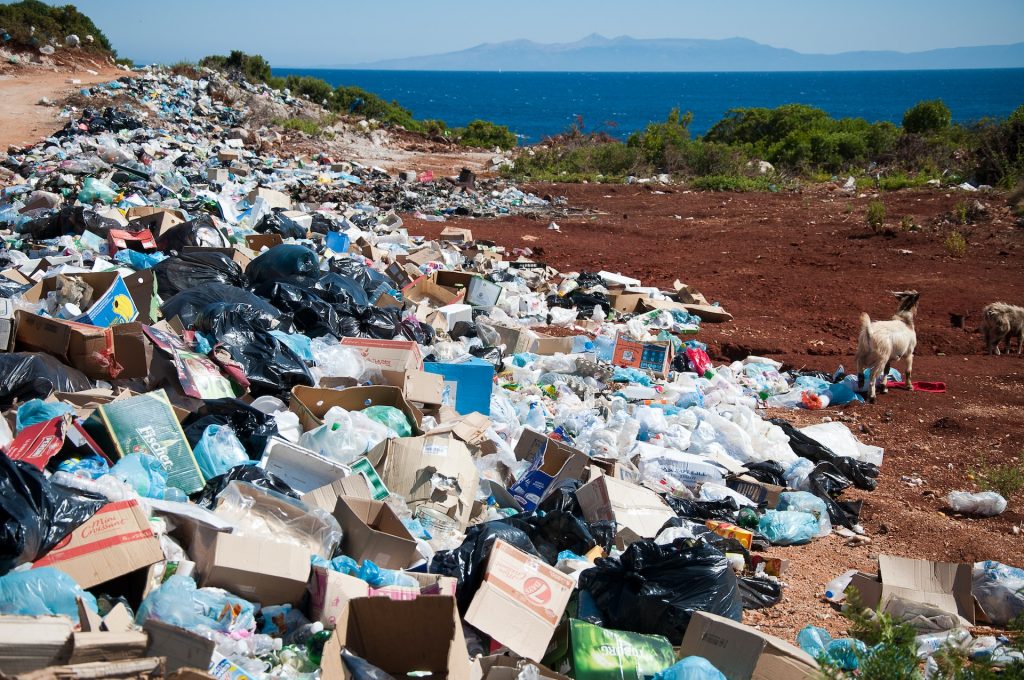
HOW BUSINESSES ARE TACKLING GLOBAL ISSUES: PLASTIC EDITION
03.08.2023
From global warming to food security, the world desperately needs innovative solutions to many of the core challenges humanity now faces. We know that third sector activity alone is not nearly enough to create meaningful impact, so what will? Find out how businesses are working to tackle some of the world’s most pressing issues.
Why is plastic pollution such a big deal?
The problems associated with current trends of global plastic consumption are immense. Global plastic production has more than quadrupled in the last 40 years, as has our reliance on plastics in our everyday lives. The problem is twofold: Firstly, plastic is costly for the environment to produce with one United Nations Environment Programme (UNEP) report suggesting that greenhouse gas emissions associated with production, use and disposal of conventional fossil fuel-based plastics could reach above 15% of the global carbon budget* by 2040. Secondly, plastic is designed to have durability to last a lifetime, but as is especially the case with single use plastic, it is often only used for mere minutes. As plastic is not biodegradable within a human lifetime, and estimates suggest that globally less than 10% of plastic is actually recycled, nearly every plastic water bottle, sandwich wrapper or plastic shopping bag that we may have used is has either been incinerated, landfilled or mismanaged and littered.
Innovation is the key to a plastic free future
While campaigns to eliminate plastic straws or shopping bags are effective in increasing public awareness of plastic pollution, we desperately need more innovative solutions to drive meaningful change. Inger Andersen, UNEP Executive Director argues that ‘we will not recycle our way out of the plastic pollution crisis: we need a systemic transformation to achieve the transition to a circular economy’.
In fact, the plastic straw debate is the perfect example to showcase that much of society will not compromise on functionality to save plastic. For instance, when McDonald’s switched to paper straws in the UK, there was a petition with over 30,000 signatures to get rid of the ‘soggy’ paper straws. Thus, we need innovative solutions that can match plastic on durability, functionality, convenience, and crucially price, if we are truly going to drive society to change. Through our investment into the McWin Food Ecosystem Fund, Q·ADVISERS is proud to back Footprint, an innovative US-based material science company offering a diversified portfolio of fiber-based products that compete at parity with plastic on many of the key touch points outlined above. Through their offering, they are helping retailers, CPGs and food companies transition to plant-based solutions, effectively reducing CO2 emissions and plastic waste generation associated with traditional plastic packaging. This innovation does not require behavior change or compromise from the end user, ultimately paving a path for meaningful impact in plastic reduction.
But what about the plastic that already exists?
We know that the transition to a plastic free (or reduced) economy will not happen overnight. Thus, we need short term solutions that can support improved handling of single use plastic once used. Instead of ending up in a landfill or incinerated, by increasing the percentage of plastic that gets recycled, we can extend the life of already produced plastic. Greenspark, a QC·Ventures portfolio company, is an innovative SaaS company working to do just that. By leveraging growing consumer demand for companies to take social and environmental action, Greenspark offers their B2B customers a way to better engage with their respective user base. Specifically, Greenspark allows their customers to tie tangible and engaging climate action to unique triggers such as planting a tree for every order or rescuing ocean-bound plastic for every signup, review, or transaction. Customer case studies support significant improvements in conversion rate after implementing Greenspark, who have already supported the clean up of well over two million plastic bottles from oceans and waterways through their innovative business model. (Read more about our decision to invest into Greenspark here!).
We need all hands-on deck to tackle plastic pollution
From innovative business solutions to decrease PET plastic dependency to innovative business models to support a reduction in plastic pollution, business can play a critical role in tackling the global issue of plastic consumption. Government regulation is also a key tool to support the transition to a more sustainable economy by pushing companies and organizations to invest in alternative solutions. For instance the EU’s Single-Use Plastics Directive aims to reduce market availably of common single use plastics such as straws and cutlery. In the meantime, we are proud to support several companies using private sector mechanisms to create meaningful impact in the fight against plastic pollution.
Click here to learn more about Greenspark or here to learn more about the McWin Food Ecosystem Fund.
* In the 2021 UNEP Report, ‘From Pollution So Solution: A Global Assessment of Marine Litter and Plastic Pollution, the global carbon budget is defined as ‘the total annual emissions budget allowable if global warming is to be limited to 1.5° Celsius.’
